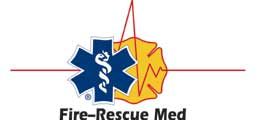Q. How has the involvement of the fire service in the management of emergency medical services changed over the years?
A. The management and delivery of pre-hospital emergency medical services has steadily grown over the past several years. Prior to the late 1960s the fire service provided basic rescue, first aid, and transportation. That role changed dramatically with the introduction of the paramedic program. Today the fire service is an integral part of a well-organized emergency medical services system with specialized professional career positions requiring an array of job competencies.
Q. When you were an aspiring leader, what were you looking for as you moved up the ranks?
A. I looked to learn from those with more experience and knowledge to share. For those of us coming up in fire service leadership positions in those years, we began to realize that many of our mentors were reaching the end of their active careers and the loss of their experience, their leadership skills and expertise would be significant.
In recognition of this potential loss of critical human resources, the California Fire Chiefs Emergency Medical Services Section took on the sizable task of creating an EMS Leadership Academy for the education of fire service professionals.
| Today’s leaders know that the key to staying ahead is information, education and networking. Fire-Rescue Med will provide these opportunities for EMS leaders from around the country at the 2010 conference in Las Vegas, May 1-5. Hear from federal officials including Kelvin Cochran and Alexander Garza as they provide insight into EMS at the national level. Sessions will also look at issues such as ambulance billing, EMS credentialing and embracing technology for fire-based EMS programs. This year’s general session will be led by John Giduck as he presents “Leading During a Crisis of Terrorism,” focusing on three recent events to demonstrate important lessons learned. If you are a current or aspiring fire chief officer who manages or oversees an EMS system, I encourage you to register for the event. |
We partnered with Dr. Richard Resurrection, a human resource expert from the California State University at Long Beach, to develop an approach which included a job analysis of various positions ranging from smaller department EMS management to larger metropolitan department management challenges.
The result was a four track leadership academy that focused on leadership skills and specific competences required to manage a fire-based EMS system.
Q. How do you think fire service managers are evaluated today?
A. Ultimately, the measurements of how good we are is tied to our ability to execute, effect change and make things happen.
Q. What skill sets do you think could benefit EMS leaders today?
A. Negotiation skills. Fire service managers are often tasked with negotiating issues with labor, their cities and others, but these negotiations often fail due to incorrect assumptions. Successful negotiations occur when a leader can identify strategies to clarify positions and interests along with techniques on negotiating to achieve buy-in from all parties. Interest-based negotiations have brought great success to the corporate world and can do the same in the fire service.
Another is strategic planning. A prudent fire officer would not initiate a fire attack without a strategy and the same can be said for a chief and the leadership challenges they take on. Forward progression of an agency must be assessed and a strategy must be developed in order to ensure organizational success. Strategic planning is vital to the success of a fire chief, the department, the community initiatives and today’s fire service.
Q. What is one thing people can start doing today to enhance their leadership?
A. I would recommend every leader take a look at themselves and really evaluate their current abilities to find where they are weak and then seek out quality leadership training opportunities to enhance that specific issue, making them a more well-rounded and stronger leader. In addition, seek out well recommended books and respected mentors to enhance those identified areas. The Leadership Academy Class, “Essentials of Leadership” at Fire-Rescue Med, does just that. It divides the skills and characters of a leader into 12 areas then provides a measuring tool to assess each students strengths in that specific area.
Q. What would you recommend to today’s company officers who aspire to hold a leadership role in their department?
A. The answer to this question is similar to the previous. Take quality classes on leadership that are practical. Find leaders of integrity and character, those who you would willingly follow and ask them to mentor you. I have memories of quality leaders who have left a lasting impact on my life and I will be forever grateful to them.
Deputy Chief Mike Metro will be presenting the EMS Leadership Academy at Fire-Rescue Med, May 1-5, in Las Vegas,, covering much of the information mentioned here and focusing on leadership skills and specific competences required to manage a fire-based EMS system. Register now for the entire EMS Management track, being offered including Strategic Planning, EMS Budget Development, Labor Relations, Interest Based Negotiations and others. Visit www.iafc.org/FRM for details.












